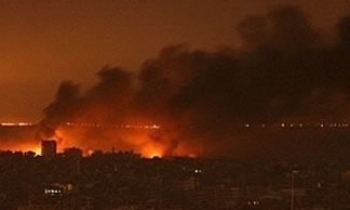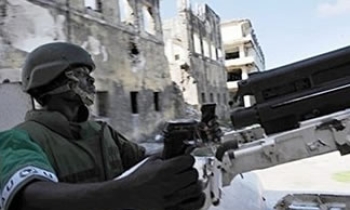SEATTLE -- A journalist listed as a potential Army witness in the case of an officer refusing to go to Iraq is concerned the military is threatening free speech and free press rights as it builds its case against the soldier.
Sarah Olson, a radio producer and freelance journalist in Oakland, Calif., is one of two reporters listed as potential witnesses in the government's case against 1st Lt. Ehren Watada, his attorney Eric Seitz said. The officer refused to deploy to Iraq on June 22 with his Stryker unit, the 3rd Brigade, 2nd Infantry Division based at Fort Lewis, about 50 miles south of Seattle.
A spokesman with Fort Lewis' public affairs office contacted Olson twice to confirm information she published from her interview with Watada, Olson said Thursday in an interview with The Associated Press.
That creates a conflict of interest, blurring the line between military prosecutors and the Army's public affairs office, Olson said.
"It sends an implicit message saying 'you should speak to us and cooperate with us and if you do maybe we'll cooperate with you,'" the journalist said.
Watada, 28, of Honolulu, was charged last week with conduct unbecoming an officer, missing troop movement and contempt toward officials - in this case, President Bush. If recommended for court-martial and convicted, he could face nearly eight years in prison and a dishonorable discharge.
Lt. Col. Dan Williams, public affairs officer at Fort Lewis, contends the journalists' names are not on military prosecutors' list of witnesses but rather one created by an investigating officer who will hear government evidence during Watada's preliminary hearing.
The investigator will recommend to commanders whether Watada should be court-martialed and wanted all potential witnesses to be made available, Williams said.
He noted also that his office often fact-checks comments in newspaper articles, so it wasn't unusual that an officer from the Judge Advocate General's office would request he check on comments Watada made in one of Olson's articles.
"I told them if they wanted to contact anyone from the media, that's my responsibility," Williams said. "Now is that wrong? I've never had any precedent saying one way or the other."
It complicates things for Olson because she then must distinguish between an office that she uses as a source and an office that is apparently carrying out an investigatory role for the military, said Bob Steele, Nelson Poynter Scholar for Journalism Values at the Poynter Institute.
"There are competing roles there, and the competing roles potentially threaten her journalistic independence," Steele said.
He also questioned the risk Olson takes by verifying Watada's comments. She could then be asked to prove them by offering up her notes, which would make available for scrutiny Watada's other comments, Steele said.
"There could be First Amendment issues for the journalist if the military is seeking protected information," he said. "It's both the case of journalistic ethics and potentially First Amendment protections."
As of Thursday, Olson had not talked to Army officials. She said she has obtained a lawyer, but hopes she won't be subpoenaed.
"I don't think that journalists should be used to prosecute the military's cases. I don't think that journalists should be used to prosecute any cases," said Olson, 31.
"It impedes the fair and free fundamentals of the press and it sends a message to people who are considering speaking to the press that they shouldn't unless they want what they say to a journalist to be used against them," she later added.
Charging documents cite articles by Olson and Gregg Kakesako of the Honolulu Star Bulletin in which Watada was quoted as saying President Bush lied about going to war in Iraq.
"As I read about the level of deception the Bush administration used to initiate and process this war, I was shocked. I became ashamed of wearing the uniform," he said in an interview with Olson that was published on the Web site http://www.truthout.org.
Seitz, a Honolulu attorney, said charges of contempt toward officials and conduct unbecoming an officer open up an argument regarding First Amendment rights.
"I'm somewhat perplexed that the Army wants to get involved in this," he said.
Olson agreed the charges raise "highly contentious, political speech issues."
"It underscores the very significant political nature of the prosecution of Lieutenant Watada. The majority of charges against him are related to things that he said in a public way to the press," said Olson.
While it seems unnecessary that the Army has filed the additional charges, it's not a surprise, said Lucy Dalglish, executive director of the Reporters Committee for Freedom of the Press in Arlington, Va.
"When you join the Army ... you have to understand that one of the things you're doing is signing away certain civil liberties, including the right to speak freely," she said.
What's distressing about the Watada case is that the government is trying to use a reporter to build its case, she added. "The last thing a reporter wants to be identified as is an investigative arm of the government."









